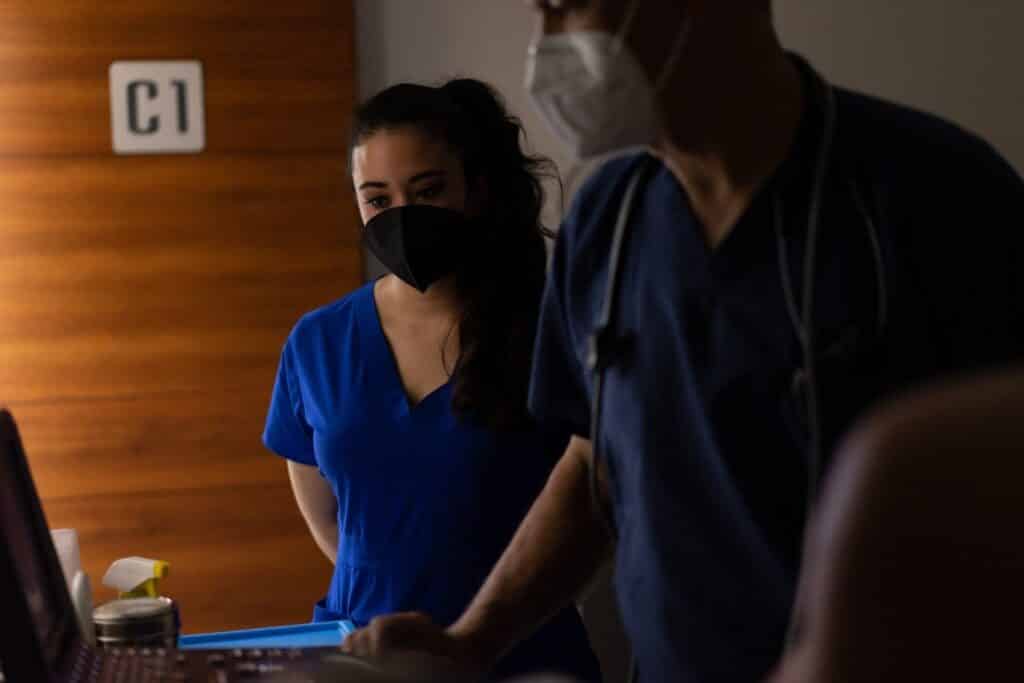Echo Training for Physicians
Echocardiography is used to diagnose numerous types of heart problems. This is a non-invasive diagnostic technique.
It provides easy access, high-performance results, and real-time information on the cardiovascular structure and functions.
Echo training for physicians makes conventional doctors into specialists who can help to detect and diagnose possible heart problems.
If you are a physician and want to upgrade your resume, then echo training for physicians would be the right choice.
In this article, we will examine the essential details you need to know before deciding to undergo echocardiography training.
How to become an Echocardiographer?
Physicians specializing in echocardiography typically do not pursue an associate degree in cardiovascular technology or diagnostic medical sonography. Instead, they complete medical school followed by a residency and potentially fellowship training in a cardiology-related specialty, with echocardiography training included.
In these programs, you will learn how to capture echocardiograph images of the heart. You will learn to identify abnormalities and record their findings for review by doctors.
This is usually a 2-year program and includes hands-on training to help students understand the human body better.
Once you graduate from this training program, you will be eligible to take the national certifications and registry exams.
4 Steps in Echo Training for Physicians
Let’s take a detailed look at the steps you need to take in echo training for physicians in the US:

Step 1 – Medical School, Residency, and Possibly a Fellowship that Includes Echocardiography Training
You must take foundational courses in anatomy, electrophysiology, medical terminology and physiology.
As an echocardiography undergraduate, you will learn everything regarding:
- Heart and vascular problems
- Pacemaker technology
- Electrocardiograms and stress testing techniques
- Doppler testing process
- Test results interpretation
Step 2 – Completing a Residency in Internal Medicine or Pediatrics, Followed by a Fellowship in Cardiology or Pediatric Cardiology
For physicians, the step towards specializing in echocardiography would involve completing a residency in internal medicine or pediatrics, followed by a fellowship in cardiology or pediatric cardiology, where they receive training in echocardiography.
In this course, you will be taught:
- Sectional anatomy
- Acoustic physics
- Medical vocabulary
- Physiology
- Cardiovascular principles
Once you have earned this associate degree in specialization, you will need to check if your state requires a license to practice echocardiography in it.
Step 3 – Certifications and Licenses
Physicians specializing in echocardiography may seek certification from organizations such as the National Board of Echocardiography (NBE) to demonstrate their expertise. This is in addition to any state medical licensure they must hold to practice medicine.
Though certifications are voluntary, you should choose to get certified to enhance your employment prospects.
Eligibility criteria for these specialized certifications require applicants to meet minimum education requirements and pass every organization’s tests.
To maintain certifications, you must demonstrate continued education; re-certification may also be required in some cases.
Step 4 – Continuing Education
As a physician trained in echocardiography, you must stay updated with the industry’s most common issues and techniques.
Continuing medical education for physicians specializing in echocardiography involves attending accredited CME courses, conferences, and relevant workshops. These websites frequently have photo and article galleries.
Echocardiography websites also allow you to subscribe to newsletters and join internet discussion forums on general, adult, pediatric, or fetal echocardiography.
Numerous community and technical colleges offer cardiac echo training for physicians, mostly through a 2-year degree program.
Career Prospects and Average Salary for Echocardiographers
According to the US Bureau of Labor Statistics (BLS), the employment demand for cardiovascular technologists and medical sonographers is expected to grow by around 12% by 2029.
This is a considerably faster-projected growth rate than other similar occupations.
According to BLS, the average salary for certified medical echocardiographers in the US is around $78,210 annually.
These statistics demonstrate the immense scope of growth and satisfaction of being well-paid working as trained and certified echocardiographers.
Conclusion
Undergoing echo training for physicians is a great way to enhance your medical expertise and earn well, knowing you are in high demand in the healthcare industry.
Experts say this career choice is incredibly efficient and helps you lead a convenient professional life.
See Also
Why Should Physicians Be Involved in Medical Research
Physicians for Social Responsibility